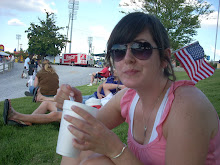The Bible, 'Tis, Gravedigger's Daughter, Cloudsplitter
The Bible by God
How about the best? Last February I started a Bible-in-a-Year program. I took my little Bible everywhere in my purse. I read it on lunch breaks in classrooms while subbing, in my car while waiting for college classes to start (or waiting for nanny job to start), in a front room at our organization in Mexico, on planes, and in my house here in the city. I may have finished after scheduled, but I finished.
And I realized the best thing. That in my 20 years of being a Christian, I had never sat down to read the very foundation of my beliefs. I started at the beginning, that journey with the Israelites, followed through with the Messiah (and felt the joy at his appearance when I got to Matthew), and ended with the hope of the gospel spoken through all of us. How refreshing, how joyous.
'Tis by Frank McCourt
I read Angela's Ashes a few years ago, and enjoyed it, and 'Tis starts off just where Angela's Ashes left off. It also reads the same, and continues the Irish conversation. I'll admit, while I like Frank McCourt, and his anecdotes about teaching were really funny, I got a bit tired of the style of writing after a while. It's an endearing story, but I was ready for it to be over.
The Gravedigger's Daughter by Joyce Carol Oates
The first half of this book was good. In fact, the first chapter was so incredibly good, I couldn't put it down and go to sleep. It played on all of my fears of assault, and moved into a complicated story. However, while the first part of the book was interesting, and the characters were rich, it eventually walked off the deep end of endless plot, and never seemed to connect again to that beginning chapter. Initially, that starter chapter seemed to set up the reader for a fascinating end where everything ties together, but instead, the reader was left with a meandering plot that just ... ended. I picked up this book because I enjoyed another one of Oates books so much, but this did not live up to that expectation.
Cloudsplitter by Russell Banks
Well, if you ever want to learn more about John Brown than you wanted to know, start here. A novelized version of his life, Cloudsplitter takes you back to the beginning of John Brown and follows his ascent (descent?) into maniacal abolitionism and the attack on Harper's Ferry. If you're looking for straight facts about the Harper's Ferry attack, this is not your book. If you're looking for a book about the character and mind of John Brown, in a non-conventional way, this is your book. The latter half of the 19th century has become an area of interest for me (especially after reading The Most Famous Man in America), and this was a nice complement to reading about other social movements at the time. Although at times tedious, I was kept interested throughout the (very long) book.

